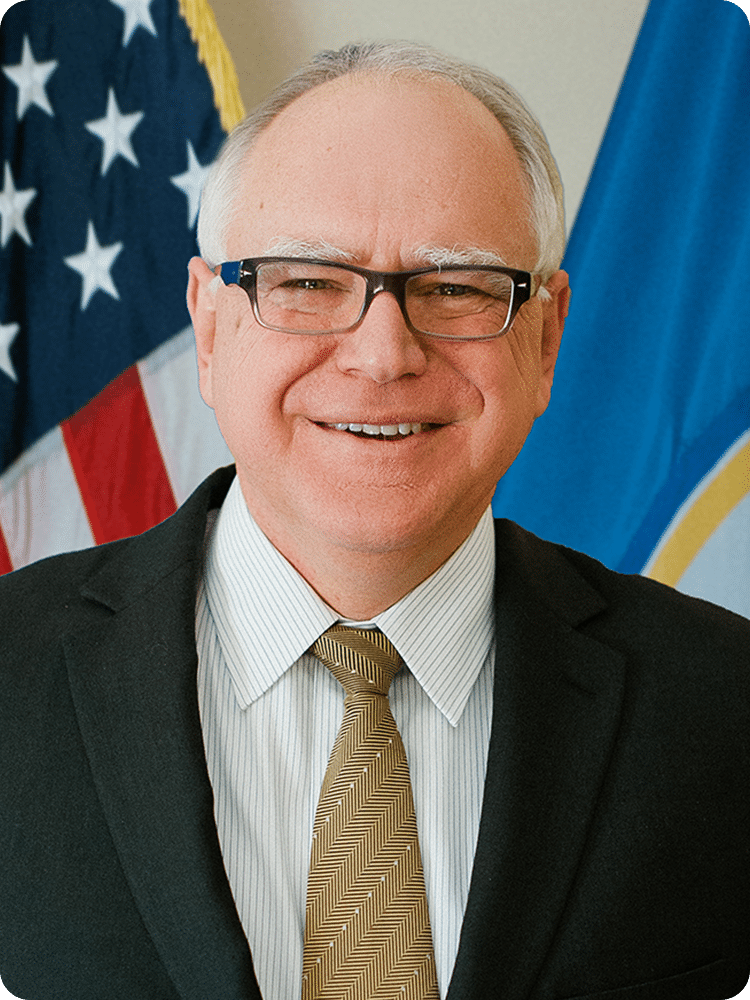Political discourse often brings unexpected connections to light, and the recent exchange between Lauren Boebert and Tim Walz is no exception. The conversation around crime rates in Detroit has sparked a debate that transcends state boundaries, intertwining national politics with local issues. This intriguing intersection of topics reveals how political rhetoric can sometimes blur the lines between fact and fiction.
In the world of politics, statements made by prominent figures can quickly gain traction, sparking conversations that extend far beyond their original context. Such is the case with the comments made by Colorado Representative Lauren Boebert regarding Governor Tim Walz's tenure in Minnesota. By referencing Detroit's crime statistics, Boebert has drawn attention not only to the complexities of urban governance but also to the broader implications of federal versus state leadership.
Lauren Boebert's assertion that Under Tim Walz, Detroit has the highest murder rates in Minnesota highlights the intricate web of political narratives. While this statement may seem perplexing at first glance, it serves as an entry point into understanding the dynamics between different levels of government and their impact on public safety. This article delves deeper into the claims surrounding Detroit’s crime rates under Governor Walz's administration, examining both the factual basis and the political motivations behind such statements.
The connection between Lauren Boebert and Tim Walz might appear tenuous, yet it underscores the interconnected nature of modern politics. As representatives from different states engage in dialogue about shared challenges like urban crime, they inadvertently create opportunities for bipartisan discussion. However, these exchanges are often fraught with misinterpretations and exaggerations, making it crucial to scrutinize the underlying facts carefully.
Crime Rates and Political Rhetoric: A Closer Examination
When discussing crime rates, it's essential to separate political rhetoric from statistical reality. Lauren Boebert's claim places Detroit's murder rate within the context of Minnesota, which raises questions about geographical accuracy and relevance. Understanding the true scope of crime in Detroit requires analyzing data specific to the city itself rather than comparing it across state lines.
Tim Walz, as the governor of Minnesota, does not directly oversee policies affecting Detroit, located in Michigan. Therefore, attributing Detroit's crime statistics to his governance reflects a misunderstanding or deliberate misrepresentation of jurisdictional responsibilities. Politicians often use such comparisons strategically to critique opponents' policies, even if those policies have little bearing on the cited issue.
Moreover, focusing solely on murder rates overlooks other critical factors contributing to overall public safety. Comprehensive strategies addressing economic inequality, education, healthcare access, and community engagement play pivotal roles in reducing crime sustainably. Thus, discussions around crime should encompass broader social determinants instead of fixating narrowly on one metric.
Unpacking the Detroit Quote: Context Matters
The so-called Detroit quote involving Lauren Boebert and Tim Walz exemplifies how context shapes interpretation. During rallies or debates, politicians frequently employ hyperbole to emphasize points or criticize adversaries. In this instance, Boebert leverages perceived shortcomings in Walz's leadership style to highlight what she perceives as failures in maintaining law and order.
However, dissecting the veracity of her claim reveals discrepancies. For example, while Detroit indeed faces significant challenges related to violent crime, its situation cannot be attributed to decisions made by Minnesota officials. Instead, local and regional factors predominantly influence crime trends in any given area. Recognizing these distinctions helps clarify the limitations inherent in cross-state comparisons.
Furthermore, the media plays a vital role in shaping public perception of such statements. Sensational headlines emphasizing dramatic contrasts between regions risk oversimplifying complex issues. Encouraging nuanced conversations about crime prevention necessitates moving away from simplistic narratives toward evidence-based analyses that consider multiple variables simultaneously.
Rally Claims and Conspiracy Theories: Where Truth Meets Fiction
Donald Trump's supporters occasionally propagate conspiracy theories aimed at discrediting Democratic leaders like Tim Walz. One such theory emerged during a rally in Detroit where J.D. Vance allegedly criticized Walz without providing concrete evidence supporting his allegations. These baseless claims serve primarily to fuel partisan divides rather than promote constructive dialogue.
Similarly, linking unrelated events—such as motorcade accidents—to political agendas further muddies the waters. When Minnesota Governor Walz experienced a minor incident involving his motorcade en route to a campaign stop, some critics seized upon it as proof of ineptitude or bad luck associated with his administration. Such opportunistic interpretations detract from meaningful discussions about governance and policy effectiveness.
In conclusion, the interplay between Lauren Boebert's remarks and Tim Walz's responses illustrates the importance of critically evaluating information presented within political contexts. By prioritizing accurate representation over sensationalism, we foster healthier democratic processes capable of tackling pressing societal concerns effectively. Ultimately, fostering transparency and accountability benefits everyone involved in shaping our collective future.

